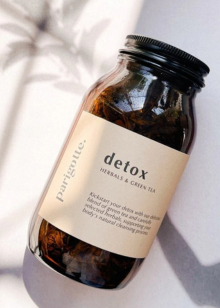Whether you’re feeling foggier than usual, can’t remember where you put your keys (again!), or simply want to know how to sharpen your mind, many of us are looking for ways to boost our brain power and cognitive health. Not only is brain fog one of the most common lingering symptoms after a bout of flu or Covid-19, but there are currently over 944,000 people with dementia in the UK, which statistics reveal will increase to over 1 million by 2030. Battling brain fog and preventing cognitive decline aren’t the only reasons to care for your brain however; having a healthy, happy brain allows us to have a happier, healthier mental state too, and there are plenty of simple, everyday ways we can boost brain health naturally. Read on to find out how!
Support Your Sleep
Sleep is one of the most important things we can do to maintain a healthy brain. When we’re asleep, the ‘glymphatic’ system is stimulated to essentially ‘sweep away’ waste from the brain, clearing away amyloid plaques, which can potentially lead to Alzheimer’s if they build up too much. A relatively recent discovery, the glymphatic system only really works well when we’re deeply resting, napping or sleeping. You can help your brain by taking a Yoga Nidra break during the day; press play on Total Yoga Nidra by Nirupta Tuli and Uma-Dinsmore Tuli, which creatively uses the most effective combinations of many different components of Yoga Nidra, to bring you into a state of resting, healing, meditative awareness.
If you can fit a 20 minute nap into your schedule (possibly easier if you work from home, unless your workplace is open to the idea…) elevate your feet on the Organic Cotton Herringbone Bolster, as the glymphatic system works even better when we elevate the feet.
To support your night-time sleep, take inspiration from one of the 100 practices in Sleep Rituals by Jennifer Williamson for a calm and peaceful sleep. You can also create your own bedtime ritual using the Yogamatters Sleep Well Set, complete with a natural soy wax candle, gentle sleep mist, and soothing sleep lotion in calming scents.
Give Yourself A Mental Warmup
Neurobiologist and host of his popular podcast Huberman Lab, Andrew Huberman often provides insightful and effective tools to improve focus and brain power. If you have a few tasks that need your full attention, such as essay-writing, emailing or organising your accounts, he suggests using the following technique to ‘on-ramp’ or ‘warm up’ your brain in preparation for a period of focusing:
- Choose an object or spot on the wall to focus on
- Hold your focus on this spot for 30 seconds, which will start to prime your brain to get into a focused state
- After focusing on the spot, turn your attention to your work
Yantras have been used for thousands of years in yogic practice to help focus the mind and cultivate a meditative state. The A4 Chakra poster contains lots of symbols and yantras you can use to focus your eyes on for that brief 30 seconds of ‘warm up’ time.
Once you start work, consider focusing in blocks of time to align with your body’s in-built ‘Ultradian Rhythms’, which you can read more about in my blog HERE. Ultradian rhythms govern that us humans are generally able to focus on average for around 90 minutes, before needing a 20 minute break to refresh our brains. After your 90 minutes of work, give your eyes a well-deserved break by slipping on the Yogamatters Organic Cotton Eye Pillow and picking a meditation from the Guided Meditation For Beginners CD by Jack Cornfield.
Feed Your Brain For More Focus
Whilst you’ll no doubt have experienced the slightly groggy, lethargic state that can occur after a large meal (which isn’t conducive to focusing on a task), it’s important that our brains have enough fuel. Eating a big meal before you need to focus diverts blood and energy to the stomach, but if we don’t eat enough, the brain doesn’t have enough nutrients to help it work optimally. The brain is made up largely of fat, so in the long-term, eating healthy fats like coconut, olives and olive oil, nuts, seeds, fish, eggs and avocado are a wonderful way to protect and nourish your brain. The preferred source of fuel for your brain however, is carbohydrates, which is why if you’ve ever tried a low-carb or Ketogenic diet, you may have felt the accompanying irritability and brain fog that can occur if these diets are done improperly. Healthy carbohydrates like fruit, root vegetables, as well as oats, sourdough and rice can all help balance blood sugar and keep your brain powering through the day. Choose healthy recipes from My New Roots by Sarah Britton, full of grounding fruit and vegetables, or Mind Food by Lauren Lovatt, a delicious and revolutionary twist on meals to make them better for your mind. Drawing on her own experience of mental health, Lovatt shares recipes season-by-season, to make the most of local ingredients to maximise the benefits according to what we need at different times of the year.
Keep On Learning
Research shows that learning helps keep the brain healthy and aids in preventing cognitive decline. In addition to the simple mood-boosting effects of learning something new, heading out to a class or a group activity that teaches you something new has been shown to promote greater brain health, especially in later years. The important point is that the subject you’re learning about should be enjoyable in order to get the biggest benefit. To start learning something new today, dive into the fascinating world of Ayurveda with Ayurveda For Life by Monica Bloom, which will teach you how to integrate the original self-care practice of Ayurveda into your everyday life. You’ll understand your dosha or ‘mind-body type’ as well as how to bring balance and vitality back to your body and mind. If it’s menopausal brain fog or forgetfulness that is bothering you most, get your brain working by reading Second Spring: The Self-Care Guide To Menopause by Kate Codrington.
Herbal Help
Scents and tastes can have a powerful effect upon the mind, both for sedating and stimulating. For a dose of focus and motivation, add a few drops of Tisserand’s peppermint essential oil to your aroma diffuser and a dab of the invigorating Scentered Focus Therapy Balm to your pulse points, with uplifting rosemary leaf, clary sage, peppermint, spearmint, bergamot and a woody base of cedarwood, patchouli and thyme. Pukka also provides plenty of herbal help for the brain with their Pukka Mind Focus Capsules, containing a blend of turmeric, brahmi and rosemary to settle uncomfortable feelings in the gut which can occur before exams, meetings or high-pressure days, and support cognitive ability.
Choose your favourites from our brain-boosting tips to start feeling the benefits in all areas of life, form your mood and memory to productivity and professional work. Which tip will you start with?














